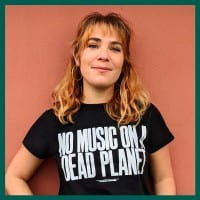Blog post written by Emma Quekett

When large companies have teams of people creating the ‘perfect’ image, they can appear eco-friendly without putting in the work. In fact, only 5% of the largest 100 public companies in the UK have credible net-zero 2050 plans. A survey by Prospects shows that three-quarters of graduates said they would be more likely to apply to a company with strong sustainable practices. With a bit of critical analysis and knowing where to look, you can quickly spot Greenwashing.
(more…)





